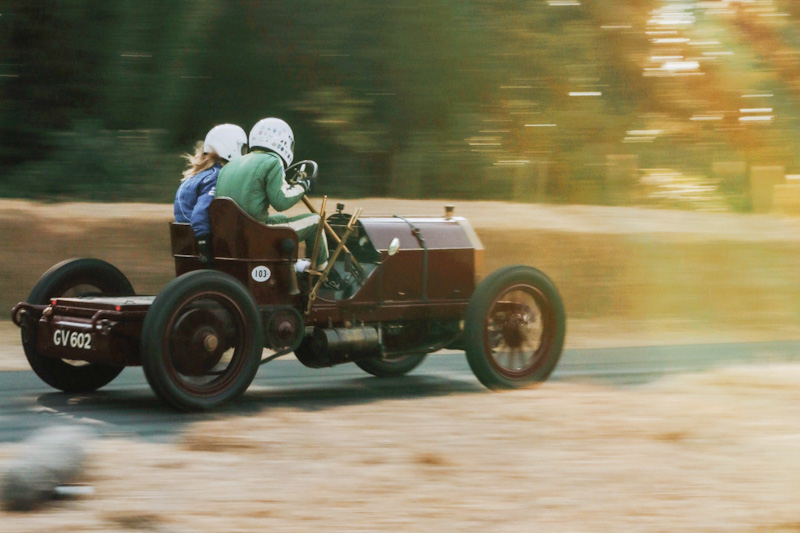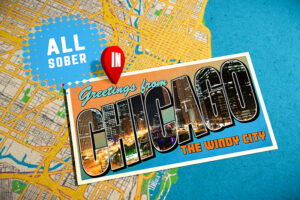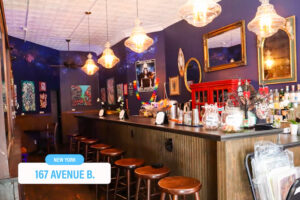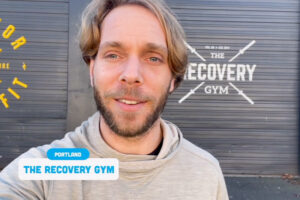Romance in Recovery: Dating Do’s and Don’ts
Yes, you're allowed to date. Yes, it could get complicated. But connection is a beautiful thing in recovery if you pursue it mindfully — here's how

Old-school recovery wisdom admonishes you not to date in your first year of sobriety. At the same time, so much of early recovery is founded on relationships and community; hopefully you’ll meet some terrific, supportive people you like. What to do, then, if you like like them?
Developing healthy relationships is vital for recovery. This might mean ending relationships that could harm your sobriety and beginning new relationships that support it. Simple enough, in theory. But early recovery can be a very emotional journey, with a lot of messy, complicated stuff going through your head, and sometimes romantic feelings pop up in the mix. Where did they come from, and should you trust them? You’ll want to answer that latter question in the affirmative — that you’re finding love in the right places for the right reasons — to know you’re ready for romance in your life.
Do Come To Terms With How Early Recovery Feels, First
Recovery from a substance use disorder (SUD) is a process that begins when an individual starts to develop a willingness to change their substance use behaviors. Stopping substance use is often the first step in a lifelong wellness journey. (Also simple enough, in theory.) Early recovery can be complex and challenging, but it is also a time of hope and possibility. It’s your opportunity to build a foundation for long-term recovery.
Early recovery — especially the first 90 days and up to the first 12 months — is a time for developing new coping skills, forming healthy relationships, and changing aspects of lifestyle and behavior. This process often involves support and guidance from family, friends or professionals.
That’s because in recovery, people begin to work on addressing the underlying causes of their addiction. This typically includes addressing trauma, mental health disorders and relationship problems. Working through these issues is rewarding but emotionally fraught; it can make you vulnerable to relapse. Are you on stable enough ground to bring another person into the equation?
Don’t Rush Into Dating Too Soon
One of the most significant risks of dating too soon in recovery from an SUD is that it can lead to relapse. When people are in recovery, they are working on rebuilding their lives and relationships with others, which means they may attend therapy, attend support group meetings and focus on sobriety. However, romance has a way of shoving other priorities aside. Don’t put yourself in a situation where you might lose sight of your recovery goals — and risk your sobriety.
Dating too soon can also trigger some people in recovery, especially if you become involved with someone who’s also struggling with addiction. Dating another person in recovery can be a supportive experience, but you don’t want to derail their recovery goals, either. Not to state the obvious, but this would likely go poorly for both of you.
Alternatively, if your potential paramour is not in recovery and frequently (or even infrequently) uses substances, that can put a serious strain on your own sobriety maintenance. Trying to abstain while you’re with someone who uses around you can quickly become a drag on your sobriety, and a completely unnecessary one.
Don’t Add Even More Emotional Baggage to Your Recovery
Liaison. Entanglement. Affair. Affaire. Intrigue. Infatuation. Coup de foudre. There’s a reason so many words for coupling up sound a little mysterious, dangerous and French: It is exciting but risky. If you’re not careful — a decidedly unsexy word — you may end up in an unhealthy relationship as an escape from the pressures of creating a life in recovery. That kind of dating can and will hinder you from working through the issues that led to your addiction in the first place.
That aside, romance is an emotionally complex and vulnerable engagement! When dating, you are opening up and sharing yourself with another person in a way that can feel scary. This can be especially difficult for people in recovery who may be working on rebuilding trust and self-esteem. Dating can also trigger old patterns of relating, such as codependency or unhealthy behaviors. It is essential to go into this with your eyes open, and to have a support system to help you navigate complications.
Do Take It at Your Own Pace. Don’t Be Too Hard on Yourself
When people are in recovery, they are often advised to take things slowly and focus on themselves. This is generally very sound advice, but it can make dating more difficult. When you’re getting to know someone, there’s a natural progression of emotional intimacy. If you’re trying to take things slow, you might be holding back and not entirely investing in the relationship. Be honest and fair about this, to your partner and yourself.
Ultimately, if you’re feeling insecure about yourself or your recovery, dating can intensify those emotions. It’s important to be honest about how ready you are to date and take things at a comfortable pace. Recovery is a journey, and it’s OK if dating isn’t part of that journey for a while. When you are ready, though? Romantic love can be a huge and wonderful part of your recovery and your life.
A Few Final Pointers
- Ensure that you are feeling stable in your sobriety and that your recovery is a priority. If you feel like you are still struggling, it might be best to wait before starting to date.
- You need to be honest with yourself and your potential partner about your recovery. Early on. Being open and frank about your history of substance use and what recovery means to you is essential.
- Reach out for support from friends, family or your sponsor if you start to date in early recovery, just in case. Remember no relationship is perfect, and sobriety can make things feel raw; a therapist or counselor can help.
By taking things slow, being honest with yourself and your partner, and staying connected to your support system, you can give yourself the best chance for a healthy and happy relationship. And you deserve that.
More Lifestyle
The Definitive Guide to Sober Travel
Vacations shouldn't be nerve-racking, but in recovery, it's not always that simple. We asked three sober travel pros how to make your trips fun — and more fulfilling than ever.
Sure-Bet Sober Date Ideas
Ready to get back out there? Sober dating isn't so hard. But here are a few pointers anyway, to help you find your groove.
Sobriety Roundtable: What's Your Favorite Sober Activity?
From roller derby to CrossFit and dog fostering to splurging on Mexican, nine sober folks shared what they do for fun and fulfillment. Get some ideas for your own Dry January or longer-term sobriety!
The Joy of Baking (Sober)
Two months sober, Annie Zimmerman decided to make cookies. Now, her hobby turned passion yields fulfillment, connection and delicious soberversary cakes. Read the interview!
Now Elite NFL Players, They First Tackled Addiction | News Roundup
All Sober compiles the best of the latest headlines. Here's your addiction and recovery news for the week of Feb. 19, 2024!
All Sober in Chicago
A great town for recovery, come sun, rain or snow! Check out our video guide to the Windy City's best sober options for bars, bottle shops — and even an arcade with vintage games.
All Sober in New York
The Big Apple truly has it all — including a sober bar with a "witchy vibe" and an array of enchanting non-alc cocktails. Take a peek in our video guide to the sober city!
All Sober in Portland
Oregon's cultural capital may be weird and proud, but it's sober and proud too! We scoped out the coolest sober-friendly spots in our new video guide.










